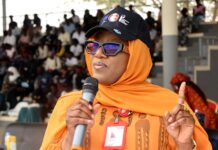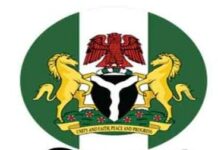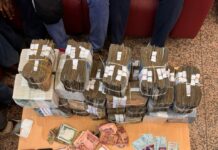Reuben Abati
It is a measure of the importance and relevance of the man known as Asiwaju Bola Ahmed Tinubu that since the return to civilian rule in 1999, he has managed to remain a major reference in the politics of Lagos State, the South West of Nigeria, and parts of the West African sub-region. He could be described as one of those creations of the tumultuous moments in Nigerian history following the annulment of the June 12, 1993 Presidential elections in Nigeria. Before then, Tinubu was a regular technocrat working in an oil company as a Treasurer. He also served briefly as a Senator of the Federal Republic representing Lagos South West in 1992.
History transforms people and creates enduring magic, lumping together event, identity, and symbolism in a notable capsule. Tinubu joined the June 12 struggle as activist, mobiliser and financier. Like most young men of his generation at the time, he wanted the best for Nigeria. He was opposed to the tyranny and the injustice perpetrated by the military. He joined the protesters at the barricades. In a country where the majority feared the military, Tinubu was one of those who stood up in defence of the values of justice, equity and national progress. I was a witness to the history of the period and the narrative of Tinubu’s becoming.
In 1999, he was justly rewarded by the leaders of the Alliance for Democracy (AD), the emergent, dominant political party in the South West, as well as the people of Lagos, with the Governorship of Lagos State. With that, a political phenomenon was born. Tinubu is in a firm position to write a book of great value on the intrigues and risks of politics in Nigeria. But unlike many, he has demonstrated a high degree of capacity for survival and re-invention. The man has managed over the years to overcome every obstacle placed in his path, and wax stronger. His travails have been many including the drama over the discrepancies in his INEC form, his age and educational qualifications, allegations about his real identity, the plans to remove him from office, disagreements with the then Federal Government led by President Olusegun Obasanjo, and the boldness with which he took on the formidable General on the field and in the law courts over controversial constitutional issues.
One after the other, Tinubu fought every battle and stood firm. In 2003, he was the only survivor in office, the last man standing, as the ruling party seized control of the South West. This alone, and the manner in which Tinubu consolidated his growing reputation as a political strategist in Nigerian politics further brought him to public attention. He not only got a second term as Governor, ending his tenure in 2007, he has also earned a place for himself in the politics of Lagos State by having a say in determining the tone, direction and rhythm of Lagos State politics since then, same in the South West and beyond. No other politician in recent South West Nigerian politics has exercised such mythical hold on the politics of a people and region.
Before him, there was Chief Obafemi Awolowo, the nationalist who became the symbol of the aspirations of his people in the Nigerian Federation. There was also Chief MKO Abiola: the icon and martyr whose heroism and sacrifice served as foundation and catalyst for Nigeria’s return to democracy and the exit of the military. And Chief Olusegun Obasanjo, the soldier turned democratic ruler who is one of the most important men of his time. And then Tinubu happened and grew bigger, to the utter consternation of even his fiercest critics. By 2011, it had become near-impossible for anyone to become Governor in the South West or President of Nigeria, or anything at all in Lagos State from Councillor to Controller of Motor Parks, without the Tinubu factor or a trip to Bourdillon. In 2014, he was the main spirit behind the coalition that led to the formation of the All Progressives Congress (APC), and that party’s eventual triumph that led to the displacement at the centre, of the Peoples Democracy Party (PDP) which up till that moment had ruled Nigeria for 16 years.
Tinubu has been many things to many people. It is not for nothing that he is regarded as the “Lion of Bourdilllon”. He lives on Bourdillon Road, a well-appointed street in the Ikoyi quarters of Lagos. It is widely agreed that Tinubu’s home in Bourdillon is where every major decision about Lagos politics is taken. It is the political headquarters of Lagos whereas Alausa in Ikeja is the administrative headquarters of the state. The Governor of Lagos State is like a Viceroy, representing the interests of and carrying out the wishes of the Lion of Bourdillon. Whoever dares the “Lion” does so at his or her own peril. Tinubu has exercised such powers over the politics of the state that used to be the federal capital of Nigeria and certainly the country’s commercial centre, with near-absolute magisterial certainty. He is the Godfather, the head of an inner circle of power brokers with tentacles beyond what the ordinary man can imagine. He is the Jagaban. He has other Chieftaincy titles including the Asiwaju which simply means “Leader” but whereas he shares other titles with others, whereas there are others who go by the descriptions: of Godfather, or Asiwjau his is the only name that is immediately thrown up when the title of Jagaban is mentioned. Jagaban in popular Hausa-Nigerian expression means “a strong person who is unshakeable, a champion and a leader who others follow.” Tinubu is the Jagaban of Borgu. Of all the titles that he has been decorated with, this has been the most reflective of his persona. He himself has been quoted as saying: “Ï am the Jagaban..” There is an onomatopoiec ring to the sound of the name that literally makes it invocative. Tinubu and his allies have deftly turned that sound into a call-sign. We are dealing with a man and a persona, a political figure whose methods and style deserve a full study, in terms of impact and essence.
The extent to which this may be worthy, was demonstrated in the last three months with the relocation of the Jagaban to the United Kingdom for a knee surgery and the time he spent there to recuperate. Afresh, Tinubu became all over again, a person of interest. There were rumours that he had died. But that was quickly debunked. He was also accused of seeking medical help abroad whereas if he and his allies had helped to build a world-class health infrastructure in Nigeria, he and other members of the privileged elite would not have needed to waste scarce foreign exchange to strengthen the medical systems in Europe at the slightest rumble of their ear-drums. Tinubu’s medical trip should be further read in the context of the fact that his supporters have been busy at home and abroad promoting him as the best man for the Presidency of Nigeria in 2023. His posters have been on the streets of Lagos, although the Independent National Electoral Commission (INEC) is yet to announce a timetable for the commencement of 2023 political campaigns and political parties are still busy discussing the politics of zoning and power rotation.
Many groups have also emerged with the loudest being the Tinubu Support Group, The Nigeria Diaspora for Asiwaju and the South West Agenda for Asiwaju Tinubu (SWAGA), dancing and drumming all over the place. Key voices in civil society have been on record trying to sell the Tinubu candidacy to Nigerians. In a demonstration of desperation, Tinubu’s allies turned his period of convalescence in London into another opportunity for political campaigns and the deification of the man they regard as their Godfather. Tinubu’s place of abode in London became a place of pilgrimage. For more than a month, Nigerians were treated to photos, practically on a daily basis, of persons trooping to London to pay homage to the Jagaban. Men. Women. Politicians. Business leaders. Delegations from different parts of the country. British Immigration must have been wondering how and why one man received so many visitors from Nigeria. Despite COVID-19 and the travel restrictions. And the cost of travel at a time like this. Those get-well visits had the colouring of sheer sycophancy and hypocrisy, but no one wanted to be left out. I didn’t see one or two APC Governors from the South West though, some Ministers, and some of those people who have quietly distanced themselves from the song and dance about a likely Tinubu Presidency. I was afraid, however, that at some point Lagos market women and motor park touts led by their Gucci-wearing leaders would also show up in London.
Tinubu’s managers themselves kept the records dutifully, capturing everything on video and releasing the copies for dramatic effect. The President of Nigeria visited too. No one was meant to be in any doubt about the stature of the man whose knee surgery had become a rallying point for political solidarity. The most telling perhaps was the APC delegation from the National Assembly that went all the way to London to greet their party leader. On that occasion, one of the visitors actually referred to Tinubu as “Mr. President!” You can’t ever put anything past Nigerians. In other parts of the world, the knee is a powerful statement of affirmation. In contrast, we saw many Nigerian leaders kissing Tinubu’s knee as political talisman.
But the man is back. He returned quietly at night a few days ago. Last Friday, to be specific. The arrival time must have been carefully chosen in order not to disrupt traffic in the city of Lagos. How thoughtful. But in these days of instant news, nobody needs that old-fashioned, attention-grabbing style anymore. Before Tinubu completed immigration processes at the airport, long before he could get to his home in Ikoyi, Nigerian social media had been informed of his arrival, with compelling photographic evidence. The Governor of Lagos State was at the airport to receive the Jagaban specially and personally. I was woken up from sleep to be reminded that “Ëko had returned!” “Eko”, that is the Yoruba name for Lagos. Tinubu had become so powerful that his allies have long substituted his name with that of Lagos, or they use both, one for the other; simultaneously. When Tinubu goes to bed, it means in the imagination of his allies that the entire city had gone to bed. When he wakes up in the morning, that is when Lagos wakes up, they say. The only people who say this is not the case are those groups where they say all kinds of negative things about the APC chieftain, and yet since 1999, they have not been able to displace him.
What is Tinubu’s staying power? Will a day ever come when he and his allies would be told in Lagos that “O to o gee?” And when will that happen? The Tinubu strategy of political dominance is the secret wish of many of his critics, but what is it that they lack that Tinubu deploys seemingly effortlessly? If Tinubu manages to win the APC Presidential ticket and emerges as Nigeria’s next President, the political future of many in the South West and the South generally may have been sealed forever. It is not for this reason however that I have been critical of the Tinubu ambition which has been expressed more by proxy. I do not think that the North wants to leave the throne to allow a Southern President take over in 2023. In Nigeria, the Presidency is a throne. The President is a monarch of sorts. The divine right of kings means that they can do as they wish. Tinubu is so involved in the Nigerian project, his critics would consider his possession of the biggest prize in the land an act of self-immolation for them. If Tinubu insists on running for President, he would also have sealed the political future of many of his associates who are also interested in the position but would not dare say so publicly if the Godfather is involved. I smell a rat. Is Tinubu playing a tactical game, the full details of which may be unraveled soon?
On Sunday, October 10, the Lagos State Governor, Babajide Sanwoolu hosted a welcome-back event for the Jagaban at the Lagos House, Marina, Lagos. The ThisDay Newspaper of October 11, at page 6, captured the spirit of the welcome party with a photo captioned: “Gathering of Tinubu Boys”. This is a picture that contains the faces of Speaker of the House of Representatives, the state Deputy Governor, the Speaker of the Lagos State House of Assembly, members of the state Executive Council, and a member of the Governor’s Advisory Council. Boys! Tinubu also reportedly staged a small gig of his own where he attended to the party faithful. Whatever happens with the hustle and jostle for the 2023 Presidential election, the Jagaban of Lagos may have succeeded in positioning his home in Bourdillon, Lagos as a major rendezvous as the game unfolds and he may never at the end of the day throw his hat into the ring. If that were to be the case, what then would happen to the SWAGA crowd? What will they eat? But of course, Nigerian politicians are shameless. They will adjust as the wind blows and make a case for their swagger as the tide changes.
Two parting shots for Tinubu: beyond the dancing, singing and photo-ops, as he returns home, he should check the roof of the party he helped to build. His roof is leaking. The APC is standing on one leg, and that has been so since the Ondo State Gubernatorial case. Can he and his associates harmonize the party? This may affect his own political future. And really, can it be said today, that Tinubu is still in control of the South West? The Jagaban should listen sometimes to his critics and less to the eye-service million men at his door






